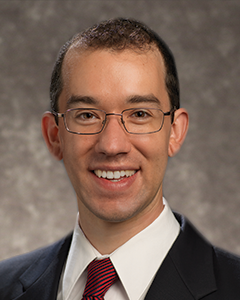On Feb. 15, 2022, the Centers for Medicare & Medicaid Services will issue a final National Coverage Analysis of its proposed recommendation to lower the eligible age and smoking history requirements for lung cancer screening.
For current and nonsmokers, a coverage change grants more people access to this life-saving screening test. According to the Centers for Disease Control and Prevention, most lung cancers are found after the cancer has spread to other parts of the body, when survival is lowest.
“Low-dose CT lung cancer screening can diagnose lung cancer at an early stage, decreasing the likelihood of lung cancer-related mortality,” said Benjamin Northrup, MD, a board-certified radiologist with Northland Radiology. “By reaching more people with this preventative measure, we can identify small pulmonary nodules before metastasis.”
With this CMS recommendation, most private insurance companies will likely cover the test and office counseling visit.
Patient Criteria
The recommendation, which has gone through public comment, stipulates LDCT lung cancer screening once a year if the patient meets all the following eligibility criteria:
- Age 50-77 years, decreased from beginning at age 55
- No signs or symptoms of lung cancer
- Tobacco history equivalent to at least 20 pack-years (one pack-year = smoking one pack per day for one year; one pack = 20 cigarettes), a decrease from 30 pack-years
- Current smoker or one who has quit within the last 15 years
- Receive an order for lung cancer screening with LDCT
“If patients meet the screening criteria, data show a clear benefit in terms of lung cancer mortality reduction,” said Dr. Northrup, adding that the American College of Radiology is among the organizations supporting the CMS recommendation.
Evidence
The proposed change comes after the U.S. Preventive Services Task Force issued a draft recommendation for lung cancer screening earlier this year. The USPSTF last issued a recommendation in 2013.
According to the USPSTF, new evidence provides proof there are clear mortality benefits to starting screening at a younger age and among people with a lighter smoking history. The findings were based on the National Lung Screening Trial, which showed lung cancer screening with LDCT in people of this age and with this lesser smoking history reduced the risk of dying from lung cancer by 20%.
The task force added earlier age and reduced pack-year screening requirements will partially ameliorate racial disparities in screening eligibility.

Benjamin Northrup, MD
Dr. Northrup earned his medical degree from Dartmouth Medical School. He completed his residency and fellowship at the Mallinckrodt Institute of Radiology.